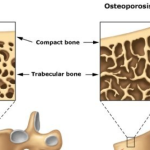Feeling unusually cold when others seem comfortable might indicate more than just personal sensitivity. Persistent coldness can signal potential health issues. Here are 11 possible reasons you may always feel chilly, along with steps you can take to address them.

1. Anemia
Anemia happens when your body doesn’t produce enough red blood cells or hemoglobin, limiting oxygen delivery to tissues and causing a cold sensation. Common symptoms include fatigue, pale skin, and cold hands or feet.
What to Do: Increase your iron intake by consuming foods like spinach, red meat, and fortified cereals. If dietary changes aren’t enough, consult a healthcare provider about supplements or other treatments.
2. Hypothyroidism
An underactive thyroid slows your metabolism, reducing your body’s ability to generate heat. Approximately 5% of the U.S. population experiences hypothyroidism, which can also lead to symptoms like weight gain, dry skin, and thinning hair.
What to Do: Thyroid hormone replacement therapy is often effective. Regular blood tests can help ensure proper medication adjustments.

3. Raynaud’s Disease
Raynaud’s disease causes spasms in the blood vessels of your fingers and toes, restricting blood flow and resulting in cold extremities.
What to Do: Wear insulated gloves and socks to keep warm. In severe cases, medications can improve blood flow.
4. Low Body Weight
A body mass index (BMI) under 18.5 may mean insufficient fat for insulation. Low muscle mass can also reduce your body’s heat generation.
What to Do: Focus on gaining weight through a healthy diet and strength-training exercises to build muscle.

5. Dehydration
Water helps regulate your body temperature. Dehydration can impair your body’s ability to retain heat, making you feel cold.
What to Do: Drink at least 6–8 cups of water daily and include water-rich foods like cucumbers and oranges in your diet.
6. Vitamin B12 Deficiency
Vitamin B12 is vital for red blood cell production. A deficiency can lead to anemia, causing coldness, fatigue, and numbness in the extremities.
What to Do: Add B12-rich foods such as eggs, dairy, and fortified cereals to your meals. Vegetarians or individuals with absorption issues might require B12 supplements or injections.

7. Poor Circulation
Conditions like peripheral artery disease (PAD) or heart disease can limit blood flow, leading to cold hands and feet.
What to Do: Regular exercise can enhance circulation. Persistent symptoms should be evaluated by a healthcare provider.
8. Diabetes
Unmanaged diabetes can damage blood vessels and nerves, resulting in poor circulation and cold extremities.
What to Do: Manage your blood sugar levels through a balanced diet, regular exercise, and prescribed medications. Proper foot care is also essential to combat cold sensations.

9. Anorexia Nervosa
This eating disorder can cause extreme weight loss and insufficient body fat, reducing your ability to stay warm.
What to Do: Treatment usually involves therapy and a nutritional plan to restore a healthy weight and overall well-being.
10. Beta Blockers
Medications like beta blockers, used to treat heart conditions, can reduce blood flow to the extremities, making them feel cold.
What to Do: If you think your medication is causing cold sensitivity, consult your doctor about adjusting your dosage or switching medications.

11. Lack of Sleep
Sleep deprivation disrupts your body’s temperature regulation, potentially making you feel cold.
What to Do: Aim for 7–8 hours of quality sleep nightly. Establish a consistent bedtime routine and avoid caffeine or screen time before sleeping.
When to See a Doctor
If persistent coldness is accompanied by symptoms like fatigue, numbness, or other concerning signs, it may indicate a serious underlying condition. Seek medical advice for a proper diagnosis and treatment plan.
Takeaway
Simple adjustments, like staying hydrated or improving your diet, might alleviate feelings of coldness. However, if the issue persists or worsens, consulting a healthcare professional is essential for identifying and treating the root cause.

